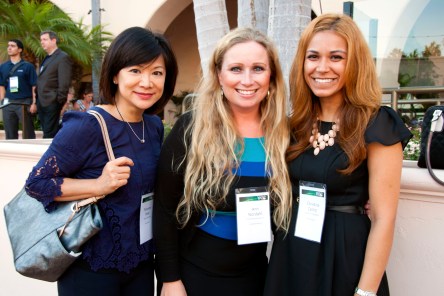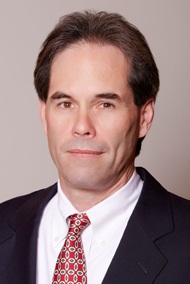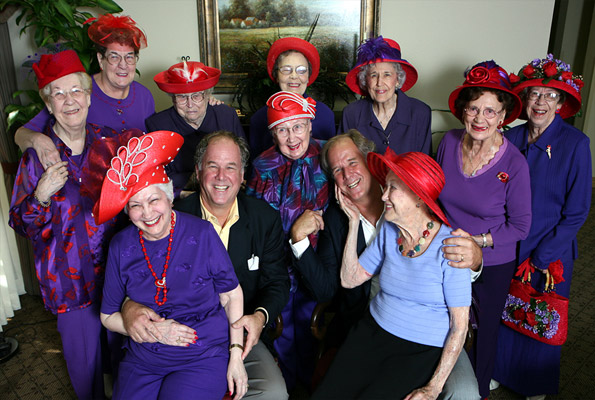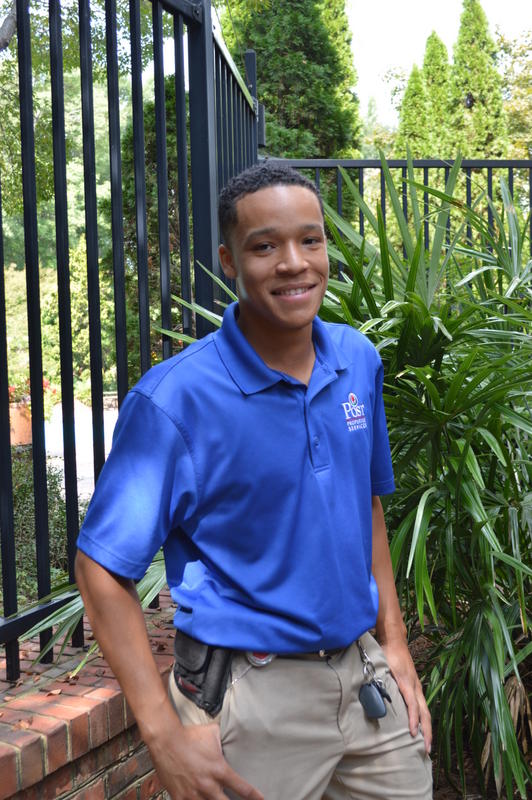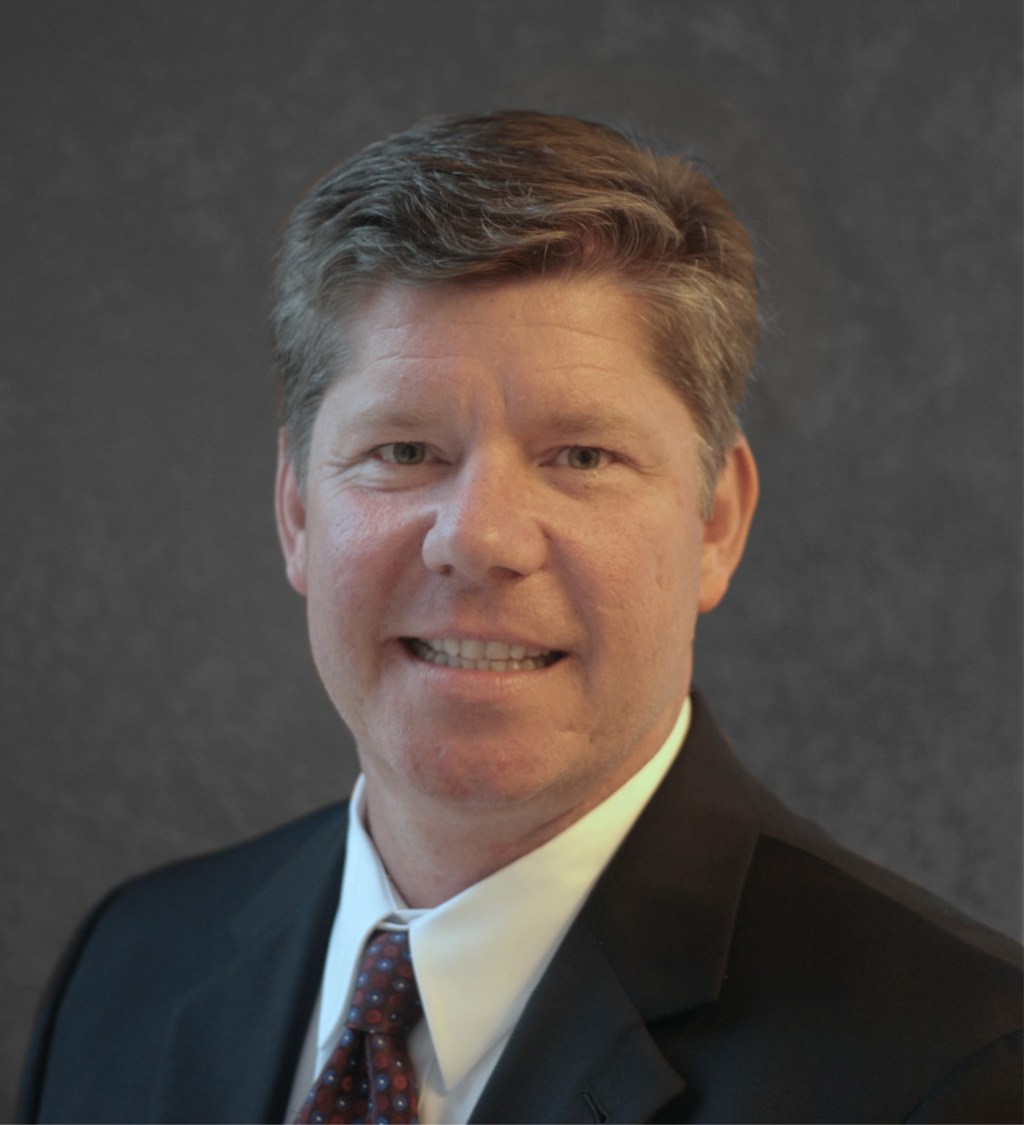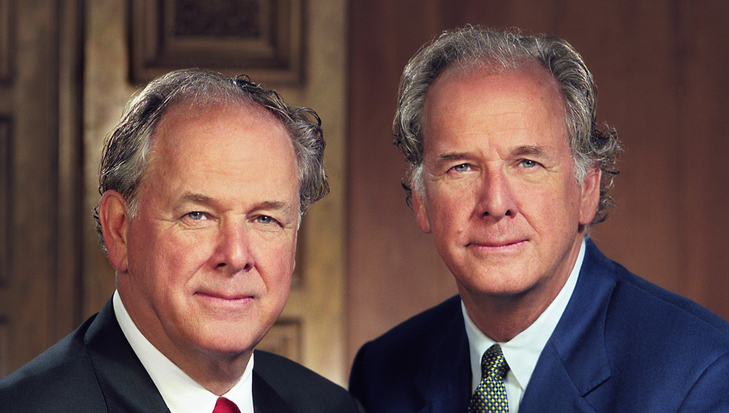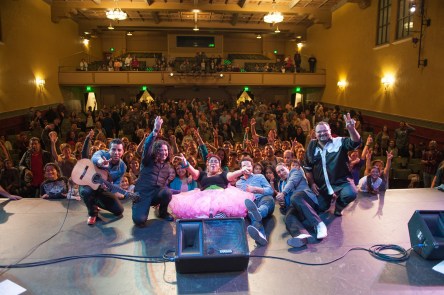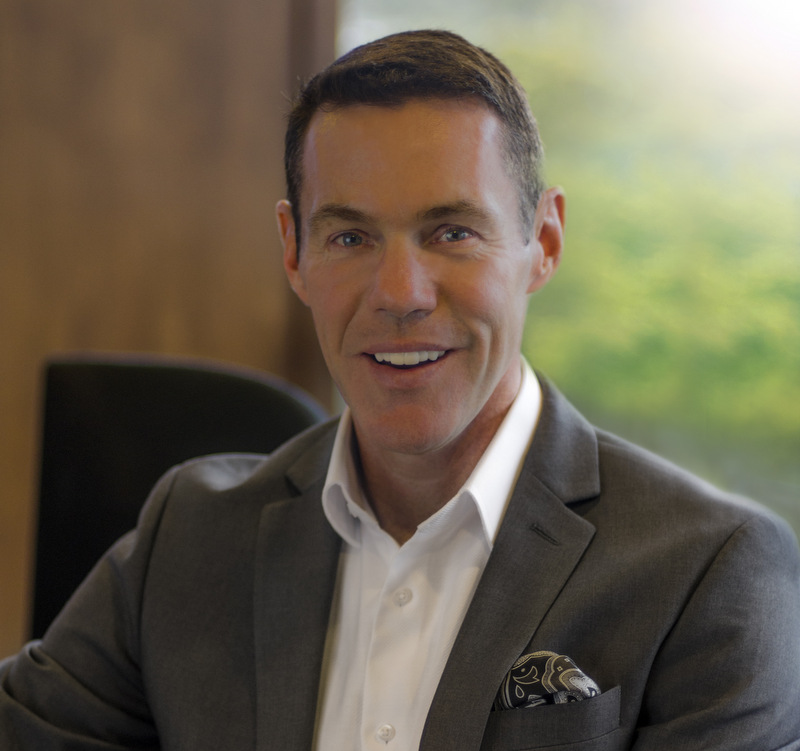It’s bittersweet to look over these images of our last Yardi Advanced Solutions Conference in Santa Barbara. However, we are looking forward to hosting YASC next fall in a larger location to accommodate more attendees. Thanks to all of the clients and Yardi staff who made this year’s event one of our most memorable. Find registration information for upcoming conferences on...
WinnResidential
Award-winning Management
Unstable growth and slashed funding in affordable housing would suggest that the sector is no longer a lucrative investment. But demand soars higher and countless companies are showcasing just how rewarding affordable housing can be. Yardi client WinnResidential, the property management arm of WinnCompanies, reigns as the nation’s largest affordable multifamily property management company as ranked by the National Affordable Housing Management Association (NAHMA). WinnResidential is also the nation’s sixth largest residential property management firm overall. In the right hands, affordable housing can be an asset to any growing portfolio. In his 20 years with WinnCompanies, Senior Vice President Brian Kean has witnessed the company’s growth despite major cuts in federal and local funding for affordable housing. With outside resources limited, WinnCompanies has to focus on other factors to ensure continued growth. The company’s large scale success with affordable housing development and management comes in part by responding to what consumers want: affordable rents, sustainability, and stellar customer service. To keep development costs low, WinnCompanies often seeks to renovate existing apartment complexes rather than pursue new construction. This approach reduces the amount of costly building materials needed while increasing the availability of quality affordable housing. WinnCompanies works hard to make operations as efficient as possible given limited resources. From a corporate level to onsite staff, the company operates on Yardi Voyager Affordable Housing in conjunction Yardi Budgeting and Forecasting to promote efficiency and accuracy. The software requires fewer employees to get involved in the paper shuffle. “Budgeting has been helpful because previously we were doing it offline on a large linked spreadsheet, which worked fairly well but we had to take the budgets and manually load them into Yardi. It was quite inefficient,” explains Kean. “In this way, if there are any last minute...
The Graham Companies
Versatility + Growth
The story of Yardi client, The Graham Companies, is a lesson in adaptability. When life handed him lemons, founder Ernest Graham made more than lemonade. He transformed a failed sugar cane plantation into a profitable town with commercial and residential properties as well as farms for dairy, pecans, and beef. Nearly a century later, The Graham Companies continues its success by embracing versatility. Graham arrived in south Florida in the 1920s to manage fields for the Pennsylvania Sugar Company. The Great Depression quickly ended that career. Instead of fixating on his losses, Graham took inventory of what he had: thousands of acres, plenty of dairy cows, and a wife who was a great business partner. The two soon opened Graham Dairy Incorporated, which became one of the largest dairy farms in the state. The family faced another dilemma less than thirty years later. Nearby Miami began to outgrow its original city limits. Developers made enticing offers on the Grahams’ farmland. Rather than bow to the pressure, the family decided to develop their land on their own terms. The concept of Miami Lakes took root, including multi-family, mixed-use, commercial, industrial, and hospitality properties. The town has been growing ever since. Miami Lakes is a predecessor of New Urbanism, providing its 30,000 residents with pedestrian access to more than 1,100 businesses, 99 parks, and numerous amenities. The town has received honors as an All American City Finalist and one of the top 100 Best Communities for Young People. “The reason Miami Lakes is so successful is because the quality of our properties is much higher than all of the surrounding areas,” says Andre Teixeira, Executive Vice President and CFO of The Graham Companies. “Everybody wants to live in Miami Lakes. They want to work in Miami Lakes....
Senior Star
Raising the Bar
Yardi client Senior Star offers independent living, assisted living, memory support, and nursing care for seniors at 13 communities throughout the heartlands of the United States. Senior Star has increased its portfolio by a third and its staff base by 43 percent in just a few years. The growth signals the company’s successful staff training that focuses on distinctive customer care as well as the adept implementation of software to facilitate efficiency. Beyond memorizing the five corporate values and task-specific skills, Senior Star cultivates empathy as part of staff training. Distinct educational programs help trainees learn to walk in the shoes of residents both figuratively and literally. The company’s dementia care training, for example, guides employees through a disorienting sensory wonderland that replicates the challenges that some seniors face. Holly Hoover, Senior Financial Analyst at Senior Star, explains the training experience, “Well, you come in and you are outfitted with various common things like your gloves on backwards and goggles that you can’t see through. You may have really hard spiky things that you’re asked to put on your bare feet. You’re led into a dark room where loud noises and various lights and other stimuli are presented to you with these hindrances so that you can experience the sensations that a dementia care resident might experience.” Trainees are then given basic tasks to perform. The disorientation caused by the stimuli and the physical discomforts help trainees to understand the struggles of residents suffering from dementia. Senior Star also requires onsite personnel to familiarize themselves with residents. Personalized care is a basic key to customer service but the approach also forges bonds that will promote healthy recollection skills for residents with dementia and Alzheimer’s. Hoover explains, “One of the things that begins to fade very quickly with a dementia care person is a memory of basic things: memory of people, memory of objects and events in their life. And the more we can tether them to that memory through our programming—through finding out, you know, as much as we can about that resident and having daily activities to help reinforce those things—the better chance they have of maintaining health. That’s, you know, what we’re about. That’s our culture of customized service to a resident.” Senior Star employees are able to focus on empathy and customized service because they are less burdened by the minutiae of daily operations. Configurable software improves the efficiency of the field staff, allowing members to focus on resident wellbeing. Senior Star currently uses Yardi Voyager, which consolidates data across the company’s portfolio, providing easy access to detailed information on each property without paper trails and time delays. Multiple types of reporting for assisted care living, memory care licensing, census-type reporting, building inspections, rent rolls and more, are all accessible with customizable permissions for those who need it. “We are able to provide that information out of the system. Our users onsite can use that without requesting from the main office and waiting,” says Hoover. “Being able to call it up in Voyager at a moment’s notice is necessary.” The time saved on reporting is then diverted to staff support and resident care. After attending YASC , Hoover is convinced that the company is just beginning to tap into all that Yardi has to offer. “We’re going to examine the electronic health records (EHR) and we are certainly looking forward to Senior CRM that we saw here at YASC today,” she says. “This is kind of where EHR comes in: you know, if you have a new employee that maybe hasn’t known the resident, we can get something in our systems that enables us to bring a new staff person up to speed very quickly on this resident, what affects her, what she dislikes, what she needs, what her daily routines are, what programming she responds to–anything that we can implement to that effect that makes that...
Maintenance Mobile
Time management solution
When J Turner Research released its list of top ten apartment resident complaints, three of the top five complaints reflected renters’ dissatisfaction with onsite staff’s responsiveness; poor grounds upkeep, disorganized staff and lingering maintenance requests lessen the chances of lease renewals and referrals. One community has discovered how Yardi Maintenance Mobile keeps staff on top of resident concerns before they become complaints. During Wesley Fonseca’s time as a maintenance tech in the Atlanta area, he has worked at several apartment communities offering varying degrees of customer satisfaction. He has observed that time management directly affects a team’s ability to meet residents’ needs and provide top quality service. “The toughest part of our job would be time management,” says Fonseca. “Being able to schedule work orders is important, so important. That will make or break a maintenance team. I’ve seen teams that were exceptional in time management and other teams that were just not and the property was in chaos.” Without a convenient maintenance app, techs may miss out on details such as move-in dates, establishing a bad first impression when new tenants arrive to a unit that isn’t ready. Techs must also return to the leasing office several times throughout the day to sign off on completed assignments and pick up new ones, wasting precious time that’s better used out in the field. With few ways to handle scheduling conflicts, pop-up emergencies, and other delays, techs may arrive late to scheduled work orders or miss out on some entirely. At Fonseca’s current community, Post Glen in Brookhaven, his team implemented Yardi’s Maintenance Mobile with great success. “I’ve seen my time management get so much better with Yardi because of how I’m able to access the work orders on my smartphone. Maintenance Mobile has helped...
Against the Wall
Limited Affordable Options
Michael J. Novogradac, a managing partner at Novogradac & Co., estimates that available affordable housing lags behind demand by as many as 20 million units. The funding simply isn’t there. Without it, low-income families and affordable housing providers are running low on options. Aubrey Fakalata, Resident Manager of Yardi client Burbank Housing has experienced the dire need for new construction firsthand, “That was one of the reasons why [Burbank Housing] built Logan Place (pictured, right), was for the homeless. When the company advertised that they were opening a brand new affordable housing property, they went straight to the homeless shelters. A majority of our applicants were from the shelters throughout Sonoma County,” she says. Without adequate housing availability, low-income families are relegated to shelters or the streets. Competition for one of the few affordable housing units becomes desperate. There are several factors contributing to the decline in available housing. Primarily, the building costs have increased while equity has remained the same for decades. There are also fewer gap financing offers and tax credits, with less money flowing from HUD in programs such as the HOME Investment Partnerships and The Community Development Block Grant. Lastly, equity investors aren’t seeing the returns that they would prefer, making affordable housing an unappealing option. “There is always a shortage of federal and state tax credits to go around,” begins Jeanne Taylor, CFO of Preservation of Affordable Housing, a Yardi client. “After the economy hit a few years ago, the tax credit arena wasn’t as plentiful…and the investors became a little stricter in their requirements.” Future tax reform could further tighten investors’ purse strings. Any legislation that includes lower rates and longer depreciation would damage the industry’s bottom line. Novogradac & Co. proposes that the industry would see as...
Minnie’s Food Pantry...
Feeding Neighbors in Need
The solution was obvious. If you can’t feed 100 people, then feed just one. It was a simple solution to a problem that didn’t exist. At least, that’s what Cheryl Jackson was told. As she educated on food insecurity in the area, many fellow residents pulled her aside to inform her that there were no hungry people in Plano, TX. “First, we had a problem educating people about the need. The need exists,” says Jackson. “They see people smiling but they don’t understand what could be going on in the background: if that smiling person earns minimum wage and they’re struggling to make ends meet or if they’re earning $11-12 per hour but that’s just not enough to support their families. Outside, everything can appear to be okay but people need help.” Jackson saw beyond the façade. In 2008, she pulled back the veil on food security and actively sought a solution by founding Minnie’s Food Pantry. She knew that the quality of food and consistency of availability would go a long way towards promoting health for North Texas families in need. She immediately sought out corporate sponsors and partnerships in addition to community contributions. Progress was slow at first but soon Minnie’s Food Pantry began to grow. Minnie’s couldn’t have come at a better time. Federal funds for SNAP food assistance were slashed by $5 billion. Families that were on the brink soon found themselves in desperate need. Ubiquitous job cuts lead to an increase in families who struggled with food security as the recession lingered. On several occasions, volunteers who once helped distribute food returned in need of assistance. “I had a management team from a huge corporation that came to volunteer. Before every group serves, I always tell them, ‘This could...
Jim Postell
Transwestern
Jim Postell brings an unusual background to the commercial real estate industry – with a passion for acting and communications, he thought he might work as a journalist or producer. But when he graduated from Florida State University with a degree in Communications/Directing, no companies in his field were hiring. So, he made a decision that would shape the future of his career. “My dad worked in commercial real estate for a company called Cross & Brown in New Jersey. He was a huge influence and encouraged me to make the shift to the industry, which he saw as a more stable and practical field.” More than 20 years later, Postell has built two regional commercial real estate offices from the ground up in his home state of New Jersey. The first was for Trammel Crow and the second was Transwestern’s New Jersey branch, an operation he grew from “me, on a laptop in my kitchen,” to a thriving office with 30 employees. Throughout his career, Postell has persevered through hardships – both professional and personal, such as raising his two young daughters after losing his wife to cancer. A turning point in his career, one that has stayed with him to this day, was his direct involvement in quickly finding new office space for 2,000 American Express employees in a span of just 10 days, immediately following the 9/11 terrorist attacks. Under Postell’s leadership, Transwestern was recently recognized as New Jersey’s No. 1 “Best Place to Work” by NJBIZ, an honor that Postell considers his greatest career achievement to date. Read on for excerpts from our interview with Jim Postell. After making such a major industry shift, have you found happiness in real estate? Postell: I enjoy it a tremendous amount and think...
Every Child Counts
Pune’s Door Step School
In India and around the world, childhood education is a crucial development tool, contributing to both personal progress and an improved international economy. But in many countries, delivering educational opportunity to all sections of the population is still a challenge, resulting in students who might attend school sporadically or not at all. In India, one of the major challenges is to convince the parents of especially impoverished children of the value of a formal education. Here in Pune, one non-profit has made it their mission to help every child have access to learning, and employees from Yardi’s office here are involved in the effort as volunteers. The Door Step School has created a project called Every Child Counts (ECC), which helps counsel parents to enroll their children to Corporation Schools. Door Step School was established in Mumbai in 1988, responding to a massive need for literacy education in slum and pavement communities. It expanded to Pune in 1993. Door Step School addresses literacy among those in the marginalized sections of society. The school provides education and support to the often-forgotten children of pavement and slum dwellers, construction site families, and many other underprivileged families. Research indicates that there are 350 million illiterate people in India. More than 25 million children do not attend school, and 2 out of 5 first grade students do not complete their education They focus on three major needs: school enrollment for children not currently attending, alternative means to education for those not enrolled in school, and retention to help those in school to stay in school. The community programs are tailor-made for the children from the slum and pavement communities. Working in partnership with government-run schools (India’s Right to Education Act mandates free education for all children between age 6 to 14), Doorstep organizes competition, excursions, library services, reading classes and extra coaching to improve the quality of learning and enhance retention. Drawing on the manpower of volunteers and community support, Doorstep helps more than 15,000 children annually with literacy programs at over 100 sites in Mumbai and Pune. They have also raised funds for educational resources and bus transportation to get students to class when unsafe obstacles or lack of walking paths might block the way. This summer, eight volunteers from the Yardi Energy Solutions Pune team took part in the activities and volunteered to meet, counsel and convince parents to admit their children to school. In the words of one of the Yardi volunteers: “It was more difficult than we had expected. Some of the people we spoke with doubted our intentions, and after much deliberation were ready to at least talk to us. We tried our best to counsel them about importance of education for their children. Some seemed convinced, and some uncertain. It will take more time and is certainly not an easy task. But we are ready for follow-ups, and will keep talking to them.” Since September 2010, Ysocial (Yardi’s Pune-based Social Committee) has committed to funding two DSS construction site schools and two Reading and Library classes for next three years. With free, accessible education something that many Western countries take for granted, we hope to help provide that same privilege to every child in...
Dylan Pichulik
XL Real Property Management
Not all costs are spelled out in a lease agreement, according to Dylan Pichulik, CEO of Yardi client XL Real Property Management. We recently interviewed Pichulik about hidden costs associated with rental units. Tell me about XL Real Property Management. Pichulik: I created XL Real Property Management as a way to better serve offsite owners and their property management needs as more and more NYC property buyers from overseas were scooping up investment properties here in the City. Since many of these foreign investors do not necessarily understand the work and many different intricacies that go into owning property here, my team helps provide a local resource that handles daily operations, like rent collection or property renovations, that many these offsite owners are unable to do from thousands of miles away. We currently have a roster of clients based both across the United States, as well in countries such as China, Australia, Russia, Venezuela and more. What are some hidden costs of rentals? How can these be avoided? Pichulik: There are quite a few additional expenses that come attached to many rental units, both in New York City and elsewhere in the country, that many people are generally not aware of. If an apartment has floor-to-ceiling windows or high ceilings, it is harder to maintain a consistent temperature, especially during the summer and winter months, causing energy bills to increase drastically. Tenants should utilize heavier curtains for the apartments with floor-to-ceiling windows, in order to maintain a consistent temperature, depending on the season. Backyards, especially in cities, are not something that renters typically factor in as an additional cost. However, unless a landlord specifies in the lease that they will maintain the backyard for a tenant, the tenant is responsible for maintaining the space,...
Standing Up for Seniors
Twin brothers, equal passion
For plenty of people, running a business with your sibling, no matter how amicable your relationship, might sound like a daunting – even undesirable – challenge. Identical twins Robert (Bob) and William (Bill) Thomas of Tulsa, Oklahoma, the co-founders and managing principals of Senior Star, talk about it differently. “It’s just a thing of joy. We’re pretty blessed; we’ve been partners for life,” says Bob Thomas. “It’s been one of the most delightful pleasures of my entire life,” says Bill Thomas. Both brothers give much of the credit for their extensive community service and close sibling relationship to their parents, the late William and Gretchen Thomas. “We just had the good fortune that our parents instilled this sense of comradeship and wanting the other to excel. We were partners in little businesses since we were mowing lawns when we were 9 years old,” says Bob. The collaboration and relative lack of competition (both say, “Neither one of us wants to be CEO”) has aided the brothers as they have built their business, which now includes 13 senior communities located in 6 states, and is hoping to double in size over the next 3 to 4 years. In 2011, Senior Star, a Yardi client, forged a partnership with Health Care REIT, which has aided in the expansion efforts. And in the process, the Thomas’ have delegated all day-to-day management responsibility to their executive team, freeing up Bill and Bob to focus on community, advocacy and other personal passions. With nearly 40 years in the real estate industry and the last 25 spent focused exclusively on senior housing, the Thomas’ have grown their company at the same time that American elder care facilities have been front line witnesses to the huge growth in patients affected by Alzheimer’s disease. Bob Thomas, a national volunteer, former board member and now fundraiser for the Alzheimer’s Association and Alzheimer’s Impact Movement, compares it to an impending tsunami. As of 2013, the Alzheimer’s Association reported that 1 in 3 American seniors died with Alzheimer’s or another form of dementia, and the disease had moved into the No. 1 spot as the nation’s most expensive. In 2014, direct costs for caring for the 5 million Americans living with the disease are estimated at $214 billion, including $150 billion in costs to Medicare and Medicaid. Approaching the scary wave from two different angles, Bob has focused on fundraising to find a cure and awareness and advocacy work at the local and national level. Bill has tackled it on the ground, encouraging the American Seniors Housing Association (ASHA) involvement and pushing forward a high standard of care for every Senior Star community, one that emanates equally from every employee. Both Thomas brothers describe themselves as passionate about helping others and engaging diverse groups of people to support their cause – from their employees, to resident’s families, to members of Congress whose decisions will support research funding. “They view the community not only thru the lens of today, but what we need to be doing to make sure that our community thrives and grows and prospers. They’re very strategic thinkers. They’re looking beyond the here to what can be,“ said Mark Graham, President/CEO of the Tulsa Area United Way (TAUW). In 2002, the brothers raised $25 million for TAUW, a fundraising record that wasn’t bested until 10 years later. The campaign jump-started the Thomases’ efforts into running major donation drives. A personal commitment Bob Thomas isn’t just committed to putting his own money toward finding a cure for Alzheimer’s. He vows to stick to the cause for the long haul. “I didn’t know, initially, that I would never leave it until it is resolved,” he said. “There’s not a waking day that I have that I don’t think about this cause.” He travels regularly and frequently to Washington, D.C. and to Senators’ home districts to push for allocating more funds...
Luke Theatre
Restoration for Our Futures
It has been over 10 years since The Marjorie Luke Theatre reopened its doors to the public. The performance venue, established in 1933, had passed through the hands of several owners before falling into a state of disrepair. It’s beautiful architecture, history, and Santa Barbarans’ notorious local pride triggered the restoration of the property. Now, the revitalized Luke Theatre is home to over 140 arts and educational organizations and countless visiting performers. Rick Villa, General Manager at The Luke Theatre has been helping dreams take stage since 2003. He became involved in the arts as a child, though when he entered college he took the sage advice to “have something you can fall back on” and majored in marketing and communications. That path led to an assistant position with the theater and ultimately to management. Since then, Villa has devoted his efforts to securing affordable access to the arts for Santa Barbarans and providing artists with a beautiful space in which to present their craft. The Luke Theatre does not produce its own shows. “We’re here to serve our community, offering an affordable house theater for anyone in our community to rent,” says Villa. Competitive pricing and an attractive space has enticed a wide range of performance troupes, school groups, local organizations, and bands to bring their talents to Santa Barbara. “[The pricing] attracts a lot of people to us and we get such a wide range of events coming through our doors, everything from operas to surf movies to plays and mariachi music,” says Villa. Though everyone is welcomed to rent the space, the theater has a special place in the hearts of youth organizations, many of which use the performing and visual arts as a tool for education. “Arts education is important...
Reach Out and Read
Closing the word gap
Reach Out and Read is an evidence-based nonprofit organization of medical providers who promote early literacy and reading aloud. The organization operates in all 50 states, serving 4 million kids each year. Medical providers distribute 6.5 million books to children and supply parents with literacy advice to help families obtain the longer term benefits of reading aloud from birth. It’s never too early to promote literacy and language development, which is why the partnership between Reach Out and Read and physicians is so important. “96 percent of kids see a pediatrician,” explains Judith Forman, Reach Out and Read’s Public Awareness Manager. “The pediatrician is the most common person outside of a home that a child sees in their first five years. We incorporate early literacy guidance into checkups since children are already going to the doctor, and parents view the pediatrician as a trusted figure.” Reading to babies and toddlers fills their word banks at an early age, establishing the foundation for academic success before they start kindergarten. By 18 months, children who are read to show greater intellectual processing skills than children whose parents did not read to them; by the age of three, the word gap–the number of words kids know—is already more than 30 million. From this stage, children are walking the path to failure or success as students. To proactively adress the word gap, the American Academy of Pediatrics recently issued a policy statement officially recommending literacy promotion via pediatricians. The announcement was made at the Clinton Global Initiative meeting as part of a partnership between the AAP, Reach Out and Read, Scholastic, and Hillary Clinton’s Too Small to Fail Organization of a partnership to raise awareness among parents about the importance of early language development. The news was feature...
Alan Missen
FirstService Residential
FirstService Residential is the largest third-party manager of homeowner’s associations in the United States, with more than 6,000 properties – and another 600 or so in Canada. So it makes sense that the Dania Beach, Florida-based company would be think big about how to deliver technology solutions specifically for the HOA lifestyle. Whether you’re a resident or owner of a home in a master planned community, a community manager of an HOA or a member of a community board of directors, FirstService is thinking about how to improve your experience, and give you mobile applications to obtain information and complete neighborhood-related tasks. “Whatever we can do to make the community manager’s life easier, and do that in an effective way, translates into a better experience for the resident,” said Alan Missen, recently appointed CIO for FirstService. “That’s such a big part of our culture, making a difference in every resident’s life every day.” Missen talked about the various apps FirstService is developing and how they hope to make the HOA experience more mobile-friendly for everyone involved. Tell us about your existing resident service portal. Missen: FSRConnect is our core property management solution. It’s focused on helping the associates to service the property and has a lot of information around the residents, the properties, and it aids in managing much of the activity around amenities. In the HOA world, there’s lots of documents that need to be put in the hands of residents, so we handle document management with this solution. We manage work orders, violations, architectural modifications, and we also provide some financial data that residents can touch. We’re generally more cautious around that, the financial data being more sensitive, so we keep a lot of that back in our accounting solutions. But we...
Special Olympics SB
Empowerment through Competition
Competition can be empowering. It doesn’t matter whether the competition takes place on a field, court or office. Knowing that you will go head-to-head with a worthy competitor encourages you to set goals, hone your skills, and believe that you are capable of emerging from the competition as a victor. You alone can forge the path to victory. Michelle Duke, Manager of Special Events and Volunteers at Special Olympics Santa Barbara, has seen the empowerment of competition at work in the athletes that she serves. From weekly practices to grueling four hour tournaments, Special Olympics athletes first challenge themselves before challenging their opponents. Their personal victories give them the confidence needed to tackle larger challenges in life. “We have an athlete who was incredibly shy. He really didn’t have any friends,” says Duke. “He got into our program and soon became a leader to other athletes. He took part in Global Youth Activation Summit where he was able to travel to Korea for the World Games. He served as an ambassador for Special Olympics. He really never would have been able to do it without the confidence that he gained with Special Olympics.” The experience empowered him with the skills needed to step out in other areas and live his life to the fullest. “Participation in the programs changes athletes’ outlook, social skills, and impacts their lives,” Duke says. Through Special Olympics, athletes also gain a support system that provides encouragement and camaraderie. Without such programing, many adults living with developmental disabilities can lead solitary lives; it can be challenging to relate to others. “Being in Special Olympics helps [athletes] connect with people of their same background, people who understand them,” says Duke. The social aspect of the games strengthens self-esteem, builds character, and...
The Problem Solver
Real world property management
Editor’s note: Last fall, we introduced you to Kyle Kazan, CEO of Beach Front Property Management and a former law enforcement officer. Kazan’s stories of dealing with problem tenants and difficult situations at his properties stood out – he is upfront and honest about real-world situations that other executives might not want to talk about. As a result, we interviewed Kazan for Multi-Housing News Magazine. Here’s a follow-up to his story. “A good B or C quality building, like a nice quality used car, doesn’t lose value. It’s in high demand, and if the majority of people are your target market, I think you’re in the safe spot,” said Kazan, whose firm has been recognized regionally for their efforts to turn around troubled units. A former policeman and inner city school teacher turned successful owner-manager, Kazan operates in real world property management. “With all due respect to my friends out there in some of the big REITs that like to stick to Class A and sinking to Class B is not where they want to be, I feel like I am right in the sweet spot of society,” he said. His company, Beach Front Property Management, is based in Long Beach, but Kazan travels the globe to oversee assets on behalf of his investors. Back in LA, he can slip back into police officer mode and lead a team to throw out drug dealers or other troublesome tenants. It’s that skill that prompted recent calls from brokers about a very troubled apartment building in Anaheim, not far from Disneyland. “The previous owner had a stroke and had been overseeing the property himself. He had six units not paying rent, and a police shooting had killed a gang member on the corner of the property....
Edith Pojum
Yardi
Technical analyst turned Q&A specialist, Edith Pojum is a dedicated member of Yardi’s CSD team in Cluj and a freelance illustrator whose playful e-cards are slowly paving her way towards taking over the world, one heart flutter at a time. Even though that’s not the way she’d go about world domination: “I’d start by helping people in need, because I have huge empathy for those who are abused, or homeless, or somehow disenfranchised.” A member of the Yardi Cluj family since November 2011, Edith Pojum previously worked as a technical analyst but switched to a Q&A specialist position three months ago. She spends her workdays testing the system, creating system enhancement and trouble requests and checking if previously reported bugs and errors have been resolved. A graduate of the University of Babeş-Bolyai’s Faculty of Economic Sciences and Business Administration, her college studies come in handy in her day-to-day tasks, as many of Yardi Voyager’s functionalities have an accounting and finance base. Edith enjoys all that her job implies, but her favorite part of working at Yardi is the atmosphere and her colleagues. Catching up with the Milton Keynes and Yardi Amsterdam office colleagues was her favorite part of the recent European CSD Conference. The conference took place in Cluj on June 11 and 12 and was attended by more than 60 Yardi staff members from Milton Keynes, Amsterdam and Cluj. “It’s always nice to meet our colleagues from other offices, we work with them on an almost daily basis.” Learning more about Voyager functionalities such as Orion Business Intelligence, Rent Café/Residential, Advanced Budgeting, Commercial Leasing Pad, Payscan App, etc. also proved exciting to the dedicated Q&A specialist. When Edith leaves the office however, is when her true passion surfaces: drawing and illustrating. Her current...
The Main Place
Addressing Invisible Need
The needs of our neighbors aren’t always evident. When Sharon Johnston served as the president of Irving Women’s Network (IWN) from 2004-2006, the organization was shocked to discover that there were over 1,000 homeless teenagers in their town. Johnston immediately called the school district’s homeless liaison to figure out how such a need could be overlooked. “I discovered that most of them were couch surfing or doubling up – multiple families living in one small home or apartment,” says Johnston. While many families avoid life on the streets, they are still unable to make ends meet. Among other things, the growing children lack adequate clothing. Johnston, a resourceful leader, quickly gathered a budget from IWN and purchased one hundred pairs of jeans, one hundred T-Shirts and one hundred hoodies. “That’s the unisex thing that everyone is wearing, kind of a uniform for teens,” Johnston laughs. She contacted Project PASS and had the clothing distributed to local teens. A similar system continued for several years. In 2009, Johnston joined forces with four other women to form Advocates for Homeless Teens. Through a triad partnership with IWN, Stein Mart- Las Colinas and Dignity U Wear (a national charity founded by an Auschwitz survivor) they received 16 commercial-sized boxes of clothing but they had no place to store or distribute the apparel. The fledgling organization rallied support from local leaders, getting their major breakthrough with the Mayor. Johnston would have been happy with a climate controlled storage unit but through the Mayor’s connections she was given access to a 6,090 square-foot building that was formerly an antiques mall. “It was a hot mess,” Johnston admits. The hole-pocked walls were covered in multicolored paint, capped off with a retro border. AllState Insurance Corporate office supplied 45 volunteers on Martin...
Josh Champion
Carroll Organization
Josh Champion considers himself a student of the real estate business, and since joining the Carroll Organization three years ago, his learning has kicked into a higher gear. Diving headfirst into the task of growing Carroll’s multifamily investment portfolio at a fast and furious pace, Champion oversaw 22 transactions in 2013, valued at over $1 billion. The acquisitions included the largest single-asset apartment purchase in Florida history, with $225 million paid by Carroll for The Resort at Pembroke Pines. Thus far in 2014, Carroll is off to a great start, with four multifamily deals closed as of the end of May, and several others under contract . The growing company has been focused on expanding its portfolio in Florida, where all four purchases are located. Champion told us that they’ll next set out to acquire in Dallas, Phoenix, Las Vegas and Denver. We talked to Champion about his success as a young executive – he’s just 30 – at a growing firm. He started his career as an intern at CBRE, then spent five years at Prudential Mortgage Capital. He’s been with the Carroll Organization since 2011. The Carroll Organization changed its focus to multifamily ownership and management in 2011. What differentiates the company? Champion: Carroll Organization is a high-energy, younger company with a lot of strategic and smart growth. We’re striving to be one of the premiere owner-operators in the multifamily business. Our market is primarily in the Southeast – including Texas and Florida, and we currently own 40 assets. Our company and our employees have a tremendous work ethic and drive for success. That directly correlates to the quality and performance of our investments. We’re a relatively young company, so we’re always looking to grow our reputation and brand. What do you...
Candlelight Ranch
Sustainable Empowerment
Candlelight Ranch provides nature-based camps for children with special needs. By customizing experiences to accommodate each group, children receive the care that they deserve as well as the challenges and opportunities that they crave. Public Relations and Marketing Chair, Adrienne Hagler, has served Candlelight Ranch for four years. The joy of working with a nonprofit was the supplement she needed in the routine of her everyday life. “To feel good when you wake up every day makes a difference,” says Hagler. “It’s not just happiness in your own life but in many lives, the majority of those who are children, some who have special needs and some who are at risk. It feels good be involved in something that promotes development and wellness in a natural environment.” Personal development and wellness is a focal point for Candlelight Ranch. Camp programs foster a sense of independence, self-confidence, and exploration. “A lot of kids who have special needs don’t serve their own plates at breakfast or wash up on their own or brush their own teeth,” begins Hagler. “A day at camp at Candlelight Ranch, these kids are encouraged to do it on their own.” Activities start first thing in the morning: outdoor excursions, soaring over the canyon on zip lines, hiking down to fresh water springs, or testing their bravery on a suspended ropes course. All activities are made accessible for participants. An all-terrain wheelchair offers kids the opportunity to tackle rugged terrain with their peers. Even the tree house is wheelchair accessible, providing a rare opportunity for kids with mobility issues to fulfill a typical childhood dream. Each activity instills self-confidence and opens a world of possibilities for the children. While the physical activities strengthen their bodies and their sense of personal accomplishment, Candlelight Ranch’s...

